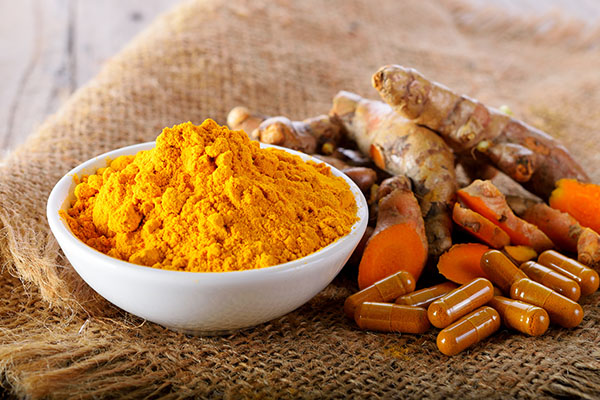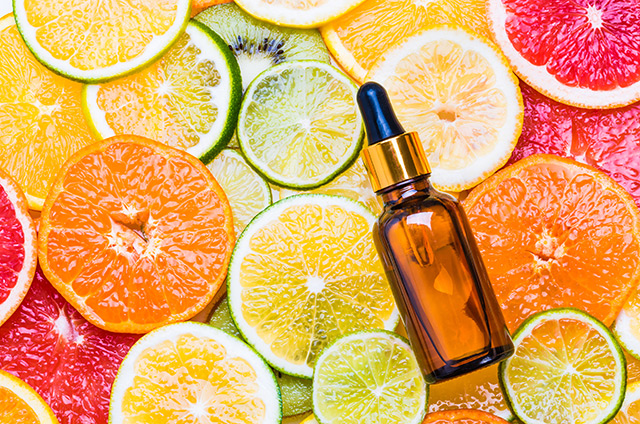Tyrosol: The unsung antioxidant powerhouse in olive oil and wine
08/25/2025 / By Ava Grace

- Tyrosol is a phenolic compound found in olive oil, wine and various herbs, known for its antioxidant and anti-inflammatory properties. It’s synthesized in nature from the amino acid tyrosine and is soluble in both water and fat.
- Used since ancient times and prevalent in the Mediterranean diet, tyrosol-rich foods like olive oil and wine had been valued for their health benefits long before modern science confirmed tyrosol’s biological activities.
- Tyrosol protects against oxidative stress, supports heart and brain health, reduces inflammation and promotes longevity by activating sirtuins — the signaling proteins involved in regulating aging.
- Extra virgin olive oil is the richest source of tyrosol, followed by wine and certain herbs. While tyrosol supplements exist, getting this compound directly from whole foods is recommended for synergistic nutrient benefits.
- Tyrosol exemplifies the link between traditional diets and disease prevention, highlighting the importance of food quality over fat avoidance. Research continues to validate tyrosol’s role in promoting longevity.
Tyrosol is a naturally occurring phenolic compound — classified as a phenylethanoid — celebrated for its antioxidant and anti-inflammatory properties. Found abundantly in olive oil, wine and certain herbs, this bioactive molecule has quietly played a role in human health for centuries, particularly within Mediterranean diets. As modern science unravels its benefits, tyrosol is gaining recognition as a key player in promoting longevity and assisting disease prevention.
Brief history of tyrosol
Tyrosol 2-(4-hydroxyphenylethanol) is a simple phenolic compound derived from the amino acid tyrosine. It belongs to a family of polyphenols, which are plant-based compounds known for their health-promoting effects. Structurally, tyrosol consists of a phenol ring attached to an ethanol group, making it soluble in both water and fats. This dual solubility allows tyrosol to interact with various biological systems, enhancing its bioavailability and effectiveness.
The presence of tyrosol-rich foods in traditional diets like the Mediterranean diet dates back millennia. Olive oil, a primary source of tyrosol, was revered in ancient Greece and Rome not only as a culinary staple but also as a natural remedy. Hippocrates reportedly prescribed olive oil for wound healing and digestive ailments, unknowingly harnessing tyrosol’s benefits. Similarly, wine — another tyrosol source — was consumed in moderation for its perceived health benefits. (Related: A toast to heart health: How moderate wine consumption could support a healthy heart.)
Tyrosol piqued scientific interest in the late 20th century. During this time, modern researchers had begun isolating phenolic compounds to understand their mechanisms of action. Studies have linked the Mediterranean diet, which include high olive oil and moderate wine consumption, to reduced cardiovascular disease risk, sparking investigations into tyrosol’s role.
Health benefits and natural sources
Tyrosol’s primary benefits stem from its antioxidant and anti-inflammatory properties. Research suggests it can:
- Protect against oxidative stress: By neutralizing free radicals, tyrosol helps prevent cellular damage linked to aging and chronic diseases.
- Support heart health: Studies indicate tyrosol may improve endothelial function and reduce LDL cholesterol oxidation, lowering atherosclerosis risk.
- Promote longevity: Animal studies suggest tyrosol activates sirtuins, the proteins associated with lifespan extension.
- Reduce inflammation: Tyrosol inhibits pro-inflammatory cytokines, showing potential as a natural treatment for inflammatory conditions like arthritis.
- Protect brain cells: Preliminary research suggests tyrosol exerts neuroprotective effects against Alzheimer’s and Parkinson’s disease.
Tyrosol is found in several plant-based foods, such as:
- Olive oil: Extra virgin olive oil is the richest source of tyrosol, with concentrations varying by processing methods.
- Wine: Red and white wines contain tyrosol, though levels differ depending on grape variety and fermentation.
- Herbs: Certain medicinal herbs, such as verbena and sage, contain measurable amounts of tyrosol.
- Green tea: This popular beverage contains related phenolics, though tyrosol itself is less prominent.
While tyrosol supplements exist, most experts recommend obtaining the compound through whole foods like olive oil, which provide synergistic nutrients. For people considering taking tyrosol supplements, typical doses range from five to 25 milligrams (mg) daily, though clinical guidelines remain limited. Consulting a healthcare provider is advised before starting a new regimen.
Foods featuring tyrosol-rich ingredients
Pure tyrosol appears as a white crystalline powder with a slightly bitter taste. In foods, tyrosol’s presence is subtle, contributing to the complex flavors of olive oil and wine without dominating their profiles.
Try making the following dishes to enjoy the benefits of tyrosol:
- Mediterranean olive oil-drizzled salad: Combine fresh greens, tomatoes and feta, then drizzle with extra virgin olive oil (high in tyrosol) and lemon.
- Red wine-braised short ribs: Slow-cook ribs to leverage tyrosol from both the wine and accompanying olive oil.
- Herb-infused olive oil dip: Blend rosemary, thyme and sage with olive oil for a tyrosol-packed appetizer.
Tyrosol represents a bridge between ancient wisdom and modern nutrition science. Its presence in Mediterranean staples offers a dietary blueprint for longevity, reinforcing the idea that some of the best medicines come not from a pill but from nature itself.
By incorporating tyrosol-rich foods into your daily meals, you can tap into a centuries-old tradition of wellness — one that science is only beginning to fully appreciate.
This story is not medical advice and is not intended to treat or cure any disease. Always consult with a qualified naturopathic physician for personalized advice about your specific health situation or concern.
For more fascinating insights into superfoods and their natural wonders, visit NaturalNews.com, a treasure trove of articles that will deepen your understanding of the healing power of food.
If you’re into cutting-edge technology with a health twist, try Brighteon.ai. Created by Mike Adams, the Health Ranger, this AI model is a free download that you can run on your own device. It’s all about sharing knowledge freely and bypassing the filters of censorship.
If you’re looking for a place to openly discuss everything from nutrition to natural remedies without any holds barred, head over to Brighteon.com. Don’t forget to check out these two free speech social media platforms, Brighteon.IO and Brighteon.social, for lively and uncensored discussions about things that matter.
Watch this video to learn about the health benefits of olive oil.
This video is from the Holistic Herbalist channel on Brighteon.com.
More related stories:
Olive oil vs. avocado oil: Both are green and healthy, but which one’s better for you?.
5 Reasons to use cold pressed olive oil, a cooking oil full of healthy fats.
Olive oil: A superfood source of antioxidants and heart-healthy fats.
Sources include:
Submit a correction >>
Tagged Under:
alternative medicine, antioxidants, food cures, food is medicine, food science, functional food, health science, longevity, Mediterranean diet, natural cures, natural health, natural medicine, Naturopathy, olive oil, organics, phytonutrients, prevention, remedies, tyrosol, wine
This article may contain statements that reflect the opinion of the author
RECENT NEWS & ARTICLES
COPYRIGHT © 2017 PHYTONUTRIENTS NEWS



















